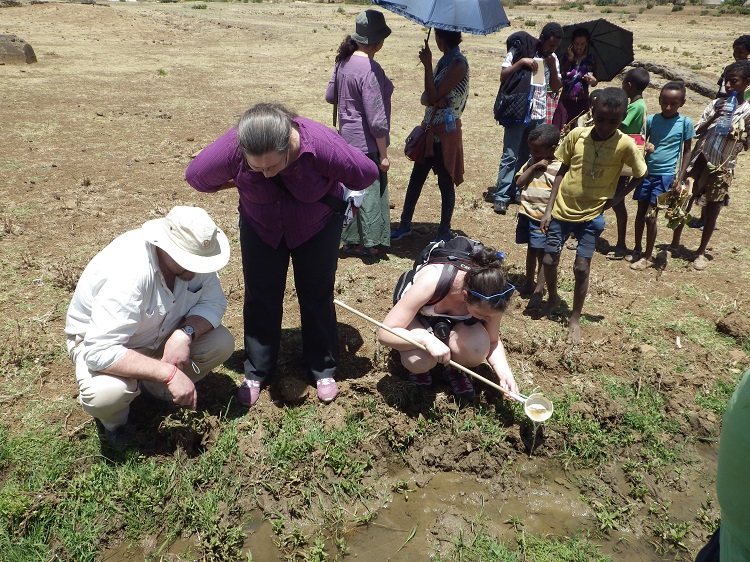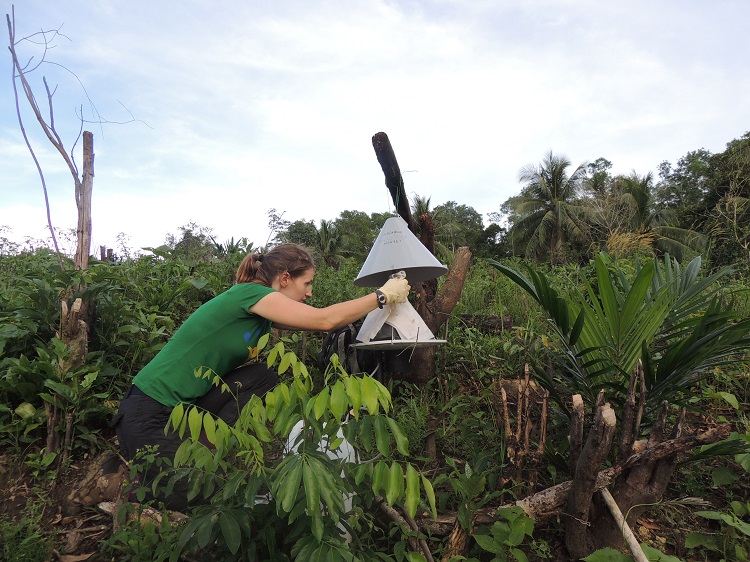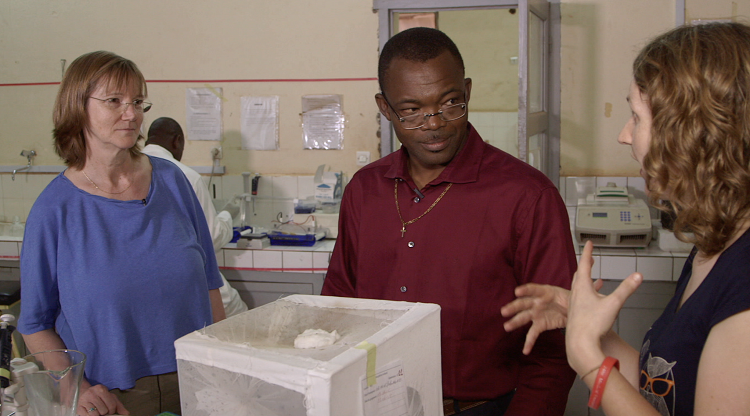
Aedes aegypti is the name of the mosquito species behind the headlines on the current Zika virus outbreak in the Americas. This species of mosquito is also responsible for transmitting dengue, the world's fastest-growing mosquito-borne disease, and other deadly diseases such as yellow fever and chikungunya. NRI researchers are set to embark on a three-year project to understand more about this mosquito species, and to ultimately develop solutions to control their spread.
Although Ae. aegypti are not in the UK, they are very widespread and can be found in tropical and subtropical zones across the world. The ongoing Zika emergency has been attributed to factors such as increased global travel and climate change – especially rising temperatures – making more places hospitable to mosquitoes. They are also highly adapted to living with or near humans, especially in urban areas, where they take advantage of artificial sites for laying their eggs that are similar to natural ones. Such 'ideal homes' include man-made containers like tyres, cups, tin cans, plant pots and other plastic items left in household rubbish – anywhere where water can accumulate.
The new NRI-led project aims to understand better the movement patterns and egg-laying sites of Ae. aegypti, to find out exactly how they go about ‘house-hunting’ and what factors make a good ‘nursery’ for their young. The team will also trace how far the mosquitoes are moving as they mate, feed and lay their eggs. This understanding will inform future development of targeted traps or repellents to reduce the incidence of people getting bitten by this mosquito and minimise the risk of being infected by dengue, Zika or other dangerous diseases. Developing targeted forms of control is particularly important as Ae. aegypti doesn’t usually bite at night but during the day, rendering bed nets ineffective.
The NRI team is led by Richard Hopkins, Reader in Behavioural Entomology and Head of the Pest Behaviour Research Group. His expertise in insect egg-laying combines with that of Gay Gibson, Professor of Medical Entomology, expert in the behaviour and control of mosquitoes damaging to health, and Frances Hawkes, Research Fellow and Behavioural Entomologist, whose work involves developing novel mosquito traps.
Another important aspect of the project is the study of chemicals involved in attracting the mosquitoes to these egg-laying sites. NRI experts include Mandela Fernandez-Grandon, Research Fellow in Chemical Ecology/Behavioural Entomology, who has direct experience of working with Ae. aegypti, and Dan Bray, Senior Research Fellow in Chemical Ecology, adept at the ‘single sensillum recording’ technique used to identify which odours the insects can detect. Together they will focus on extracting and identifying odours that attract female mosquitoes to egg-laying sites. These odours will subsequently be used to attract mosquitoes to traps or enhance the potency of repellents.
 This month, the team will be travelling to Brazil to meet up with research team partners based at the Fundação Oswaldo Cruz (Oswaldo Cruz Foundation, known as FIOCRUZ) in Rio de Janeiro, where the project will be officially launched. The FIOCRUZ team is led by Principal Investigator Dr Luciano A Moreira who specialises in the interaction of mosquitoes and the pathogens they transmit. Much of the work will be based in Brazil, although the outcomes will be relevant throughout the affected areas.
This month, the team will be travelling to Brazil to meet up with research team partners based at the Fundação Oswaldo Cruz (Oswaldo Cruz Foundation, known as FIOCRUZ) in Rio de Janeiro, where the project will be officially launched. The FIOCRUZ team is led by Principal Investigator Dr Luciano A Moreira who specialises in the interaction of mosquitoes and the pathogens they transmit. Much of the work will be based in Brazil, although the outcomes will be relevant throughout the affected areas.
Funded by the UK’s Medical Research Council, the project comes under the umbrella of ‘research on neglected tropical diseases’; with growing international concern over the spread of the hitherto little-known Zika virus, the importance of understanding more about Ae. aegypti has never been more urgent.
Links: NRI’s Pest Behaviour Research Group | University of Greenwich press release on NRI mosquito research | Medical Research Council | FIOCRUZ, Brazil

